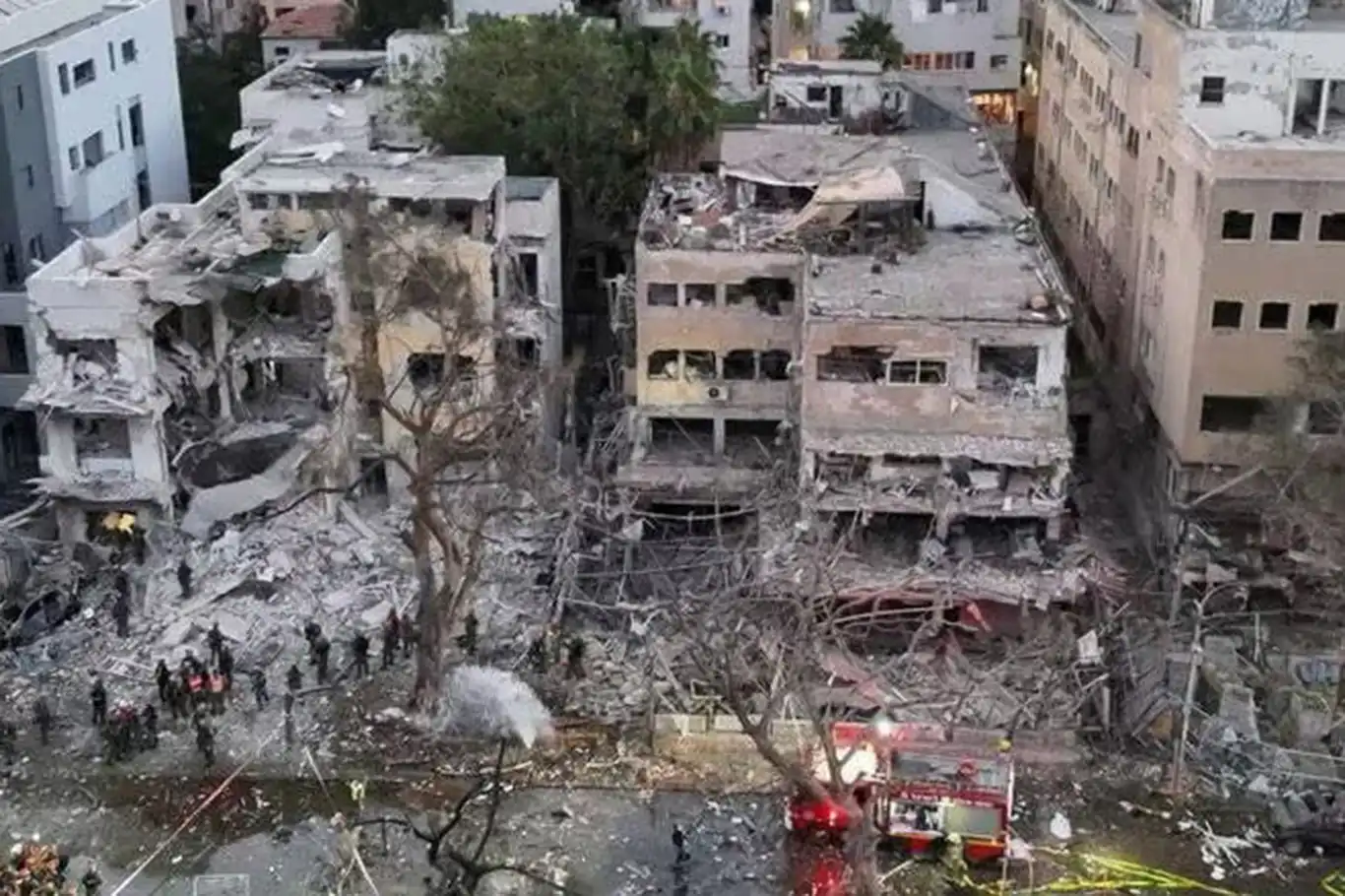Iran warns: Israeli aggression will not go unpunished


Iran’s Permanent Representative to the United Nations, Ambassador Amir Saeid Iravani, delivered a forceful address at the 79th Session of the UN General Assembly on Monday, condemning recent Israeli attacks on Iranian territory and vowing that such acts "will not go unpunished."
Speaking during a session dedicated to the elimination of unilateral coercive economic measures, Iravani also used the platform to condemn Israel’s latest military assault on Iranian territory, which began on 13 June and targeted civilian areas, nuclear sites, and key infrastructure across the country. The attacks, which left hundreds of civilians dead and over a thousand wounded, were described by Iravani as “unprovoked, premeditated aggression” and “flagrant violations of the UN Charter.”
“These are, without a doubt, horrendous crimes and violations of all the red lines,” Iravani said. “Make no mistake—our people will not falter in their resolve to defend their homeland against the Israeli regime. We will not allow the regime to operate with impunity. The Israeli regime will be held fully accountable.”
The Iranian envoy further accused Israel of committing terrorism by attacking Iran’s peaceful nuclear facilities, which remain under full supervision of the International Atomic Energy Agency (IAEA). He emphasized that such attacks not only constitute a threat to Iran but also to regional and global security.
Linking Israel’s actions to a broader pattern of illegality, Iravani noted the regime’s history of “total criminal nature and hatred towards international law,” citing its ongoing assault on Gaza and widespread violations of Palestinian rights. “Since its illegitimate inception to the present day, the genocidal regime has continued to defy every principle of the UN Charter,” he added.
In addition to condemning Israel, Iravani addressed the broader issue of unilateral coercive measures (UCMs), calling them “unlawful” and “inhumane.” He criticized the economic and political sanctions imposed on sovereign states by certain powers, arguing that they violate international legal norms and disproportionately harm civilian populations.
“These measures undermine the sovereign equality of states and interfere in their right to freely engage in international economic cooperation,” Iravani asserted. “Claims of exemptions from humanitarian consequences are a false narrative aimed at deflecting attention from the devastating impact of these measures.”
Backed by Venezuela and Eritrea, Iran presented a draft resolution calling for the establishment of an “International Day against Unilateral Coercive Measures” to raise global awareness and promote international cooperation grounded in respect for international law.
The Iranian diplomat concluded his address by honoring the martyrs of the recent Israeli aggression, including military commanders and civilians, and reiterated that Iran will continue to respond decisively in self-defense under Article 51 of the UN Charter.
The speech was met with strong support from allied nations, particularly within the Group of Friends in Defense of the UN Charter, while Israeli and some Western representatives left the chamber during Iravani’s remarks.
Observers note that Iran’s growing diplomatic assertiveness at the UN underscores rising tensions in the Middle East and reflects Tehran’s broader strategy of confronting Israel’s actions not only militarily but also in the international legal and diplomatic arenas. (ILKHA)
LEGAL WARNING: All rights of the published news, photos and videos are reserved by İlke Haber Ajansı Basın Yayın San. Trade A.Ş. Under no circumstances can all or part of the news, photos and videos be used without a written contract or subscription.
Afghanistan’s Minister of Industry and Commerce, Nooruddin Azizi, has called on Norwegian officials to help attract foreign investment into Afghanistan, particularly in key sectors like mining and small and medium enterprises.
The Palestinian Ministry of Education and Higher Education issued a devastating report on Tuesday, revealing that more than 16,600 students have been killed and over 26,000 wounded since Israel launched its brutal assault on Gaza and the West Bank on October 7, 2023.
The Islamic Revolution Guard Corps (IRGC) announced on Tuesday that it had launched a new, intensified wave of missile strikes against key Israeli military and intelligence installations, striking deep into the heart of the Israeli regime's command infrastructure.
Nasser Medical Complex, the last major hospital with an operational intensive care unit (ICU) in southern Gaza, is on the brink of collapse as Israeli military evacuation orders and expanding “red zones” isolate it from the population it serves, medical staff and humanitarian organizations warn.